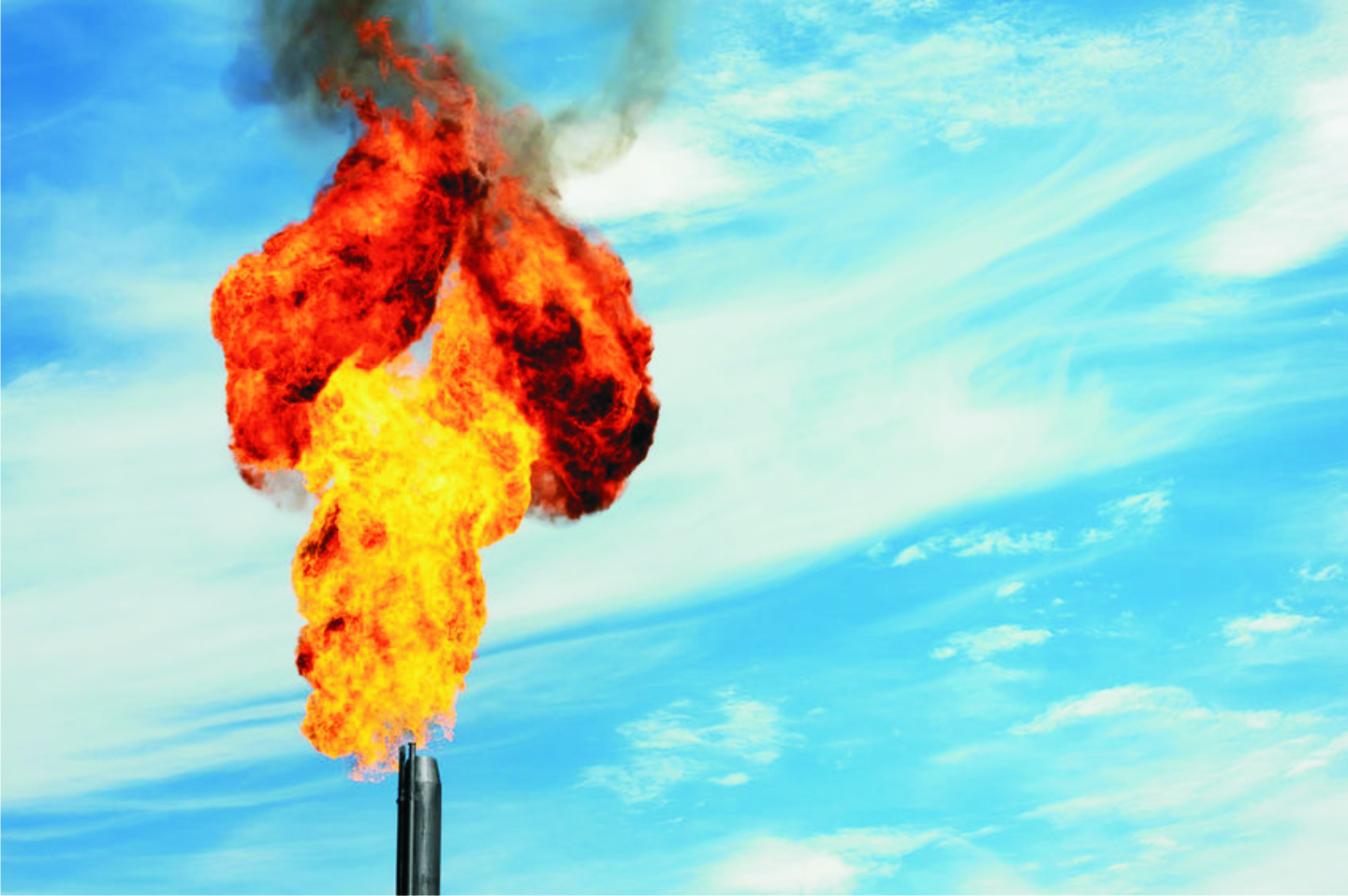Business
Nigeria Loses N300bn To Gas Flaring In Seven Months

Gas flaring in Nigeria’s oil fields has taken a huge toll on the economy, as the country flared 225.1 billion standard cubic feet of gas, (bscf) between January and July 2020.
The monetary value of the burnt gas in the international market is $787.7 million (about N299.33 billion).
This comes against the backdrop of the huge revenue losses arising from the impact of the outbreak of Coronavirus, COVID-19, pandemic, which crashed both volume and price of crude oil sales.
According to the National Environmental Economic and Development Study, (NEEDS), the environmental cost of gas flaring in Nigeria is $94 million (about N35.7 billion) yearly.
The volume of gas flared was an equivalent of 12.0 million tonnes of carbon dioxide emission.
A report from the Federal Government’s Gas Flare Tracker, stated that the 225.1 bscf of gas flared by the oil and gas firms in the first seven months of 2020 was capable of generating 22,500 gigawatts hour of electricity.
Giving a breakdown of the volume of gas flared in the period under review, the report stated that 136.0 bscf of gas was flared onshore, while 89.1 bscf of gas was flared offshore.
On a month-on-month basis, the report stated that in January 2020, 40.03 bscf of gas was flared; 32.15 bscf in February; 37.61 bscf in March, while 38.84 bscf, 36.98 bscf, 37.21 bscf and 2.24 bscf of gas was flared in April, May, June and July 2020, respectively.
Famfa Oil flared 7.6 bscf of gas from Oil Prospecting Licence, OPL, 216; Shell Petroleum Development Company, SPDC, flared 6.9 bscf, 6.7 bscf and 5.4 bscf of gas from OML 11, OML 29 and OML 18 respectively; while Nigerian National Petroleum Corpo-ration’s, NNPC, upstream subsidiary, Nigerian Petroleum Development Company, NPDC, flared 4.6 bscf of gas from OPL 091.
In its report – ‘‘Nigeria’s Flaring Reduction Target: 2020,”, the World Bank, stated: “With almost 8 billion cubic meters of gas flared annually according to satellite data, Nigeria is the seventh-largest gas flaring nation in the world. At the same time approximately 75 million Nigerians lack access to electricity.”
Similarly, an investigation showed that Nigeria continues to flare commercial gas because of many issues and problems, including lack of adequate investments in gas and related sectors, especially power.
Others include much associated gas, which is produced along with crude oil, over-reliance of oil and delay in the passage of the Petroleum Industry Bill, a comprehensive legislation, planned to restructure, encourage investments and bring about more transparency and accountability in the industry.
Business
Agency Gives Insight Into Its Inspection, Monitoring Operations

Business
BVN Enrolments Rise 6% To 67.8m In 2025 — NIBSS

The Nigeria Inter-Bank Settlement System (NIBSS) has said that Bank Verification Number (BVN) enrolments rose by 6.8 per cent year-on-year to 67.8 million as at December 2025, up from 63.5 million recorded in the corresponding period of 2024.
In a statement published on its website, NIBSS attributed the growth to stronger policy enforcement by the Central Bank of Nigeria (CBN) and the expansion of diaspora enrolment initiatives.
NIBSS noted that the expansion reinforces the BVN system’s central role in Nigeria’s financial inclusion drive and digital identity framework.
Another major driver, the statement said, was the rollout of the Non-Resident Bank Verification Number (NRBVN) initiative, which allows Nigerians in the diaspora to obtain a BVN remotely without physical presence in the country.
A five-year analysis by NIBSS showed consistent growth in BVN enrolments, rising from 51.9 million in 2021 to 56.0 million in 2022, 60.1 million in 2023, 63.5 million in 2024 and 67.8 million by December 2025. The steady increase reflects stronger compliance with biometric identity requirements and improved coverage of the national banking identity system.
However, NIBSS noted that BVN enrolments still lag the total number of active bank accounts, which exceeded 320 million as of March 2025.
The gap, it explained, is largely due to multiple bank accounts linked to single BVNs, as well as customers yet to complete enrolment, despite the progress recorded.

